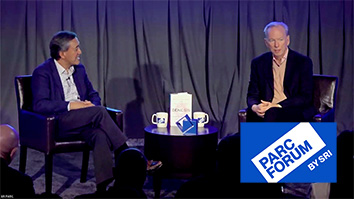Citation
Konolige, K. (1980). A First-Order Formalization of Knowledge and Action for a Multiagent Planning System. SRI INTERNATIONAL MENLO PARK CA ARTIFICIAL INTELLIGENCE CENTER.
Abstract
We are interested in constructing a computer agent whose behavior will be intelligent enough to perform cooperative tasks involving other agents like itself. The construction of such agents has been a major goal of artificial intelligence research. One of the key tasks such an agent must perform is to form plans to carry out its intentions in a complex world in which other planning agents also exist. To construct such agents, it will be necessary to address a number of issues that concern the interaction of knowledge, actions, and planning. Briefly stated, an agent at planning time must take into account what his future states of knowledge will be if he is to form plans that he can execute; and if he must incorporate the plans of other agents into his own, then he must also be able to reason about the knowledge and plans of other agents in an appropriate way. These ideas have been explored by several researchers, especially McCarthy and Hayes [McCarthy and Hayes, 1969] and Moore [Moore 1980].
Despite the importance of this problem, there has not been a great deal of work in the area of formalizing a solution. Formalisms for both action and knowledge separately have been examined in some depth, but there have been few attempts at a synthesis. The exception to this is Moore’s thesis on reasoning about knowledge and action [Moore 1980], for which a planner has been recently proposed [Appelt 1980]. Moore shows how a formalism based on possible-world semantics can be used to reason about the interaction of knowledge and action. In this paper we develop an alternative formalism for reasoning about knowledge, belief, and action; we show how this formalism can be used to deal with several well-known problems, and then describe how it could be used by a plan constructing systems.


